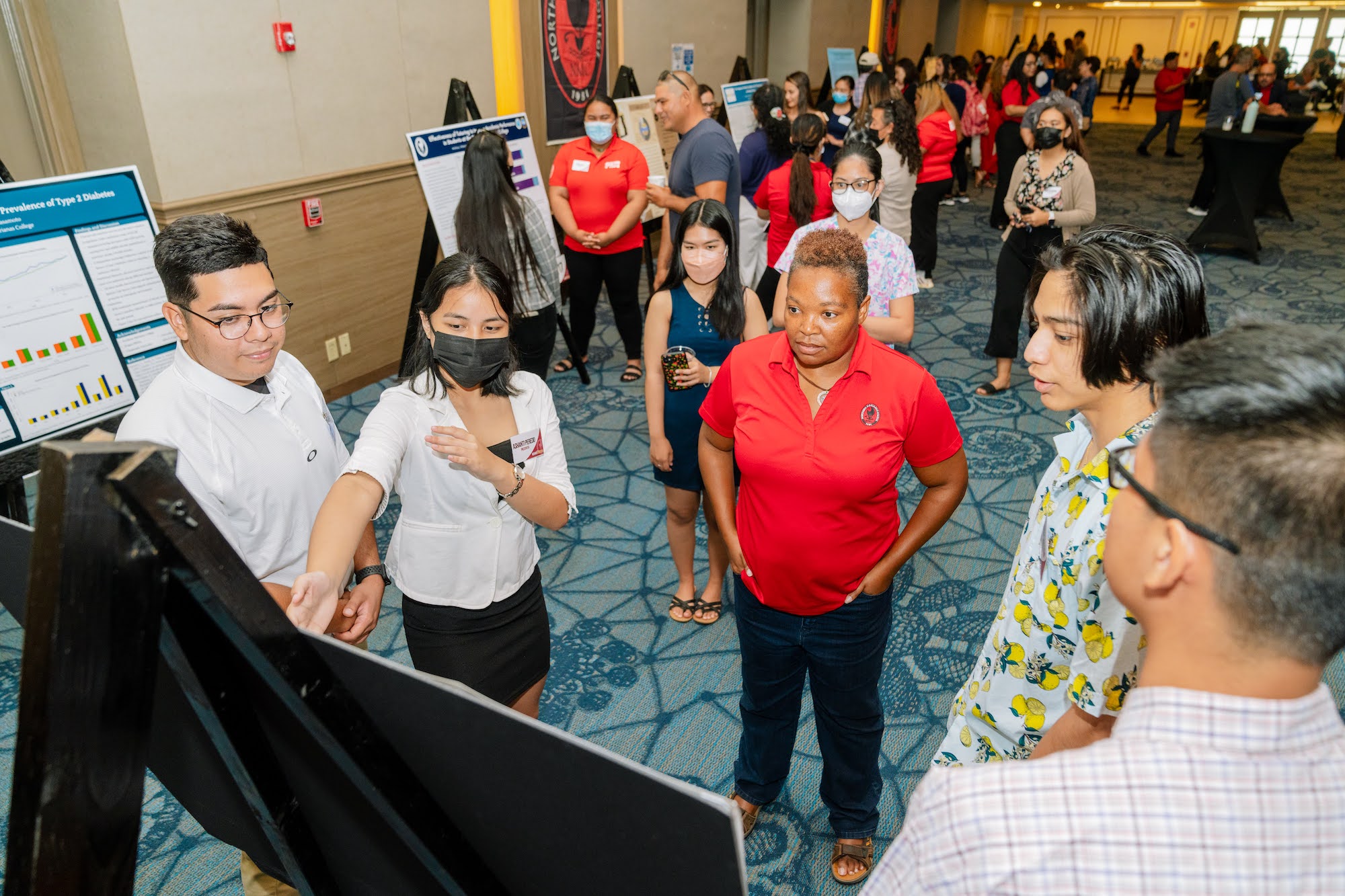OVER 20 presentations from 50 researchers offered possible solutions to "real world" problems in the CNMI during Northern Marianas College's 2nd Annual Research Symposium at Saipan World Resort on Friday.
The event, which was hosted by NMC’s Science Mathematics Health and Athletics department and Project PROA, featured a collection of research projects from students and faculty across the different degree programs at NC.
The last time NMC held the event, there were only five presentations, said NMC President Dr. Galvin Deleon Guerrero.
That symposium was held at NMC and the theme was “Stewardship Through Scholarship.”
This year, the significant increase in the number of presenters — 50 —"shows that there is need" for this annual event, the NMC president said.
Most of the presenters, he said, are NMC students and other community researchers.
Using with visual aids and demonstrations, they presented their research findings about "real world" problems, and their possible solutions.
NMC Board of Regents Chairman Charles Cepeda said the turnout was “great,” and most of the presentations were interesting. "I think it is great that our people here in the CNMI are coming up with these ideas,” he added.
The presenters also fielded questions from their audience.
NMC associate professor Beylul Solomon, PhD, the keynote speaker, said some of her students have told her that they would like to prove if their hypothesis is true.
“That is not the purpose of research,” she said. “The purpose of research is to ask questions in order to gather evidence that contributes to advancing knowledge. However, often times the way in which we ask questions, gather and interpret evidence is dependent on who is asking the questions and how they are interpreting the evidence.”
She added, “Representation matters! We know that Asian Americans and Pacific Islanders are one of the most underrepresented groups in research, often times being lumped into one large group which is problematic when you are trying to find…similarities and differences. So students, here is where you come in! This is why we need people like all of you to learn how to do research.”
Addressing the presenters, Solomon said, “Now all of you here today are way ahead of the curve from where I started my research journey. And I couldn’t be prouder to see all the different ideas and topics presented in the room here today.”
She added, “As you go on this exciting journey, one day you may find yourself thinking that you are not good enough or not ‘science-y’ enough; just remember that every single researcher once started off in their version of a dark closet, watching videotapes, asking themselves ‘What am I doing here? Am I even capable of learning this? When that moment comes for you, always remember that you are capable of so much more than you believe.”
Presentations
Former NMC student Tiana Pellegrino Ranjo and her mentor, NMC instructor Denise Myers, made a presentation on kinesiology. They conducted research on the psychology of movement, specifically, “the perceived value of the ability to squat.” They found out that in the CNMI, 72% of those who participated in the survey experienced difficulty with sit-to-stand or STS movement at some point in their lifetime. This difficulty could result in negative feelings and a poorer quality of life.
Ranjo said regular walking can help a lot, both physically and psychologically.
NMC student Charlie Foster’s presentation was on the “pay as you go concept” in taxation. It involves learning “when and how to change your withholding or estimated taxes.”
Solomon and NMC student Kaye Ann Obando conducted research on the impact of social isolation and technology use on mental health. Based on their research, there was no evidence indicating that social isolation has a significant impact on the mental health of the surveyed participants.
There was, however, positive correlation between technology use and higher mood and anxiety scores.
This supports previous research on the concurrent rise of technology use with higher rates of mental health issues such as depression and anxiety.
NMC students Lesly Ibarra and Hannah Santos’ presentation was about woodlice which feed on decaying leaves and pieces of rotting wood.
For their part, NMC students Yukiana Dela Cruz and Tina Kobayashi shared the research findings regarding mealworm beetles and their importance to the ecosystem.


